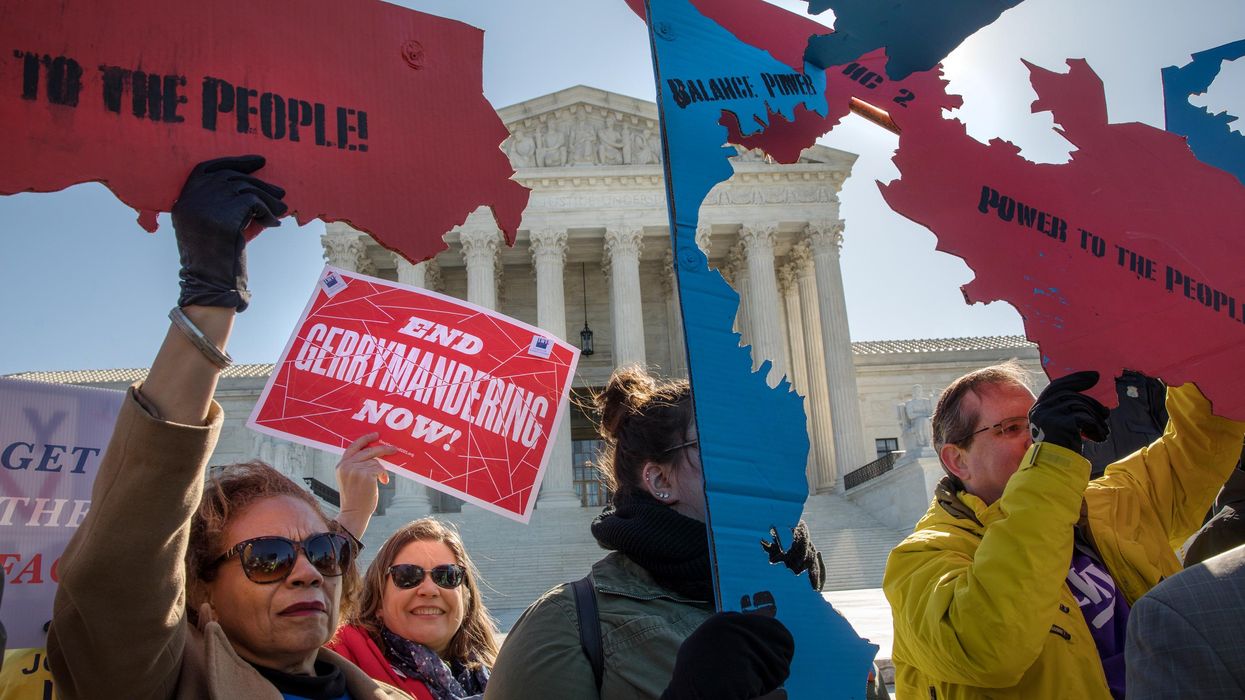Founded as an independent national news outlet, The Fulcrum explores and advances solutions to the challenges facing our democratic republic—by amplifying diverse, civic-minded voices. We've long championed a new political paradigm rooted in civil discourse, civic integrity, and personal accountability while warning that hyper-partisan rhetoric and entrenched party lines threaten the very foundation of reasoned governance.
But in 2025, the threat has evolved. The content arriving in our newsroom, as well as the voices from the field, reflect not just frustration with gridlock, but growing alarm over the systematic dismantling of democratic institutions. From reform leaders to civic organizations to everyday citizens, we’re hearing the same refrain: The machinery of democracy is not merely stalled, but systematically being dismantled.
The Reform Movement's Dilemma
At The Fulcrum, we’ve consistently amplified voices advocating for structural reforms: eliminating gerrymandering, fixing campaign finance, opening primaries, and advancing ranked-choice voting. The leaders of national reform organizations we regularly feature view these changes not simply as policy adjustments, but as moral imperatives essential to ensuring citizens have a meaningful voice and agency in their governance.
These reforms rest on a foundational assumption: that we operate within a functioning representative, democratic framework where voters ultimately shape the system rather than being shaped by it. But what happens when that assumption collapses?
This is the dilemma we now face. In our February editorial, we reaffirmed our commitment to avoid reflexive partisanship while telling the truth about real threats to democratic governance. We acknowledged the complexity of our moment and the need to distinguish legitimate political debate from norm-breaking behavior that corrodes democratic values.
That balance between clarity and complexity, truth and transparency, remains our editorial compass. But as democratic backsliding accelerates, the terrain we navigate grows more precarious.
Unprecedented Presidential Endorsement of Gerrymandering
The urgency of the moment came into sharp focus last week.
On August 3, most of the Texas House Democrats boarded private planes bound for Chicago, New York, and Boston. Their dramatic exit was to deny Republicans the quorum needed to redraw congressional maps for one goal: adding up to five Republican seats to preserve GOP control in Congress.
While partisan gerrymandering is nothing new, this effort crossed a new threshold. President Trump placed a personal call to Governor Greg Abbott, after which Abbott agreed to put redistricting on his special session agenda. Trump himself said a "very simple redrawing" would pick up five seats, openly acknowledging partisan intent in a way that would have been unthinkable in previous eras. This would increase Republican control to nearly 80% of Texas seats from the current 66% held, in a state where Trump won only 56% of the vote.
This is not “business as usual,” and we should not pretend it is.
Addressing Reader Concerns
This brings us to last week’s piece by scholar Austin Sarat, which sparked concern among some readers. Sarat argued that in response to norm-breaking tactics like Texas’s redistricting plan, Democrats may need to consider tactical, short-term responses that conflict with longer-term reform ideals. Some readers saw this as The Fulcrum abandoning its commitment to nonpartisan reform.
We understand the discomfort. But Sarat’s piece was not a call to abandon principles. It was a provocative exploration of a hard question: If one side refuses to play by the rules of fair representation, does adhering to those rules amount to surrender? Or, put differently, can defending democratic norms in the short term require responses that complicate our long-term reform goals?
Our Editorial Challenge
This is the complexity we face at The Fulcrum. We remain steadfast in our commitment to structural reforms: independent redistricting commissions, transparent governance, and democratic innovations that reduce partisan manipulation.
But we also recognize that long-term solutions alone don’t suffice in moments of immediate crisis, especially when the President is publicly calling for partisan gerrymandering, lawmakers are facing arrest for protesting anti-democratic moves, and bomb threats are targeting those dissenters in Chicago area hotel rooms.
Texas redistricting illuminates why examining issues from multiple angles isn't abandoning reform principles, but recognizing that reform happens in the real world, where perfect solutions compete with imperfect but immediate responses to threats.
We will continue to publish voices that advocate principled, systemic change. And we will also publish those that wrestle with the strategic and moral dilemmas of how best to defend democracy under duress. When those tensions arise next, we will name them directly, examine them rigorously, and help our readers understand the stakes and consequences of each path.
This is how democracy is protected: not just with bold ideas for the future, but with honest conversations about the challenges of the present.
We invite you to stay in this conversation with us. Share our work. Challenge our assumptions. Hold us accountable. Because we believe deeply that the future of democracy depends not just on reform, but on our collective ability to confront uncomfortable truths, and to do so together.
Kristina Becvar is executive director of the Bridge Alliance Education Fund and co-publisher of The Fulcrum.
David Nevins is co-publisher of The Fulcrum and co-founder and board chairman of the Bridge Alliance Education Fund.



















